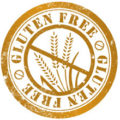Does anybody miss malted drinks? Ovaltine is the only one I can think of, though I’m sure there are others.
I ask because Cuban researchers are trying to make a malted drink out of sorghum, which is naturally gluten free.
If this comes off – and if its cheap enough – it will be interesting to see whether major manufacturers would be prepared to use sorghum-malt as flavouring instead of gluten-containing malt, for example in breakfast cereals. You’d think so – it would widen their market to include all the celiacs out there. But I guess it will depend on cost …
 |
I’ve written a book summarising what we’ve learnt over 20 years of dealing with the gluten free diet, and it might be just what you’re looking for. It packs the lessons we’ve learned into what I hope is a helpful and straightforward guidebook. It’s available on Amazon, as a paperback or for your Kindle… |





I don’t miss malted drinks what I miss are the Malted Milk Balls. That was a favorite of mine as a child and would often have them in my desk at work for a pick me up during the day.
If malted sorghum is ever commercially available there will be a ready market for the home brewers of beer who have caeliac disease .
I am the President of the Beer and beef Club here in Australia and have been recently diagnosed with Caeliac disease .This has sentenced me to a life long gluten free diet and no normal beer.
As a keen home brewer I am on the look out for a source of malted sorghum so I can get back to enjoying one of the greatest beverages ever invented .
Unfortunately cider just doesnt cut the mustard .
I have tried 2 Australian commercial gluten free beers O’Briens and Silly Yak and they are very good but the price is exorbitant making it very much a luxury beverage.
I live in hope that I can get some malted sorghum.
David, that must be a real blow – no more beer! I think GF beer is a growing niche, but I just don’t know where you would begin to find malted sorghum. Could the Cuban researchers help?
Lea, what are Malted Milk Balls? Are they a sweet or a biscuit? (Candy or cookie?)
David, while I can not find malted sorghum there is a product available for the homebrewer. Breiss in the USA makes a Sorghum extract for homebrewing. Is is sold under the Breissweet name and is a 1 for 1 substitute for Barly Malt in home brewing. I have just completed my first batch with it and it is quite good. They are also marketing the product as a Malt substitute for the food industry as well. If I understand their information correctly its not made from malted sorghum but by another process.
Jay, thank you so much for that suggestion. I’m sure it will be very useful to a homebrewer who needs a substitue for barley malt. David, if you try it too, please let us know how you get on.
What a joy to find this site. I am, thank heavens, not coeliac, but suffer from intermittent gluten intolerance — it comes and goes. I am also an obsessive lover of beer, and enthusiastic home-brewer from raw ingredients. When I first recognized the affliction a few years ago, I searched for sources of sorghum malt in the UK, and came up with nothing. A friend from Southern Africa offered to bring me a tin in his luggage, and I had to explain that I was talking about 25Kg every few months.
There is clearly a demand. Where are the suppliers?
Good question Tim!
Potential business opportunity for someone, perhaps?
David, malted sorghum is available in Australia from a home brew store in Melbourne called Grain & Grape. Brewers’ Choice from QLD also offer the Briess raw sorghum syrup.
Drew, you’re a star! I hope David sees this and picks it up …
Does anyone have the details of how to malt sorghum, buckwheat and other grains – naturally in a GF way without using barley malt?
My wife is a Dane and a Coeliac and I want to try and brew something like a decent pilsner lager for her (not one of the usual syrupy GF beers and lagers – something that a Dane might actually *enjoy*.
Having worked in the past from Dave Lines brewing books before her diagnosis nearly 20 years ago, I want to try my hand at malting and brewing something a bit pleasanter than the usual GF beers.
I’m a long time technical and scientific specialist – originally a biologist and biochemist – then finally a radiation protection specialist in a University, so quite capable of performing steps to high precision, even at home. I just need the data. I nearly had heart failure when I looked at the cost of buying textbooks…
By the by, I now have a recipe for bread which non-coeliacs are puzzled by, because it seems to be “ordinary” bread and they can’t believe that it contains no wheat at all (nor any other naughtinesses). I’m working on a short-crust pastry which is fine when it works but isn’t yet consistent enough, and a white bread, which just needs a bit more tweaking…
I’ll post the primary bread recipe for folk to try if they are prepared to bake with 7 different flours in the mix (yes, I mean this 7!).
Regards
David
Hi David – now there’s a challenge, a gluten free pilsner lager for a Dane… I know nothing about brewing, but perhaps someone else out there does?
And if you’ve found the perfect recipe for bread, please share! Are the 7 different flours easily available?
Dear Lucy,
Since I don’t know where you are, I can’t really say *just* how available the flours are. Here in the UK they are sometimes a bit of a fiddle to get hold of but available. I believe that they’re available in the US too.
I’ll put the recipe on when I get home, as I don’t have the up-to-date version here at work. I do claim copyright on it, so if you post it or pass it on *please* everyone also pass on that it is my copyright recipe – there’s 15 years or more of my hard labour in it and I hope to publish it with other recipes.
Briess malting makes several gluten-free syrups, only sorghum seems to have any flavor. You can always supplement with something more flavorful like honey, or belgian candi sugar, or treacle
I’d think that you could use the extract for the majority of fermentables. You’d only need to malt enoguh to make some character malts (crystal, roasted, etc.,) and I think that’s ok, because you don’t need to worry about being as good malster if you’re not going to get high fermentable yield from these. Crystal malts I think woudl be the hardest.
Anyways, Randy Mosher’s Radical Brewing talks a lot about making your own malts.
Lee, thank you for that information. I’m sure it will be invaluable for people interested in gluten-free brewing – though you’re all now way beyond my area of expertise!
David, is this the kind of information you were looking for? Incidentally, on the cost of textbooks, is there anything useful for you at Project Gutenberg? (http://www.gutenberg.org)
Dear Lucy,
Here’s my promised Bread Recipe for bread which non-coeliacs are not usually aware is not “ordinary” bread. This is nearly 18 years worth of work, so don’t be surprised at how complicated it is. I’ve repeatedly tried to bring it back to a simpler recipe but it just doesn’t work properly. I’ve also got a white bread recipe I’m working on but that needs some tweaking yet, due to the quality of white poppy seeds I can get here in the UK (the poppy seeds, sesame seeds and toasted sesame oil give the bread its “bite” and its wheaten flavour. Be careful with the toasted sesame oil as it can rapidly get too much if you add more than I suggest.
Poppy Seed, Sesame Seed and Sunflower Seed Bread
These quantities are for a bread-maker, I often make loaves and rolls with a triple quantity
2 eggs
20 mls vinegar
Make up to 510 mls with water
10 mls toasted sesame seed oil
30 mls vegetable oil
200 g cornflour
45 g glutinous rice flour
40 g tapioca flour
10 g hemp seed flour
5g rice bran
50 g fine corn meal
50 g sorghum flour
25 g black (or blue) poppy seed
20 g hulled sesame seed
30 g hulled sunflower seed
1 tsp sugar
2 tsp salt
4 tsp Xanthan gum
1 tbs dried yeast (more rather than less)
It’s a good idea to mix the eggs and liquid well together before putting them in the bread-maker, as we’ve had problems of them mixing incompletely both together and into the mix.
The toasted sesame seed oil is a vital flavouring component but you may need more or less according to taste.
If you are not using a breadmaker, it is a good idea to beat the liquid, then warm it to about 40 C (I do this in the microwave) then add all the dry ingredients. The mix MUST be beaten well. If you’re feeling strong you can do this by hand. I recommend an electric hand blender. It’ll then need to rise for some time in warm conditions. I can set our oven to run at about 40 C so in winter, it’s still possible to get a good rise. It’s just possible to make rolls with the mix when it has been beaten enough, if you flour well and flour your hands well too. Loaves take about 30 – 35 minutes to bake, while rolls being smaller do well in 15 – 20 minutes. I tend to bake them for a shorter time and freeze. Then breakfast rolls can come out of the freezer into a pre-warmed oven (200 C) for 10 minutes or so. Worth doing this for bread too, although this bread keeps fairly well. If you need it to keep for longer, then add another 10 mls of vegetable oil to the recipe.
Please note that this recipe is my own and I claim copyright on it. I would greatly appreciate feedback on it. My experience is that non-coeliacs are unaware of this being anything other than a “fancy” bread, and most seem to like it very much. The recipe is still being “tweaked” and any suggestions you have to improve the flavour and texture further will be appreciated.
Yes but where do I get these ingredients?
Glutinous rice flour is available from Chinese Supermarkets (I get big packs of cornflour and my tapioca flour from them too. Hemp seed flour, rice bran, and poppy seed are available from health food shops and on the Internet in both the UK and North America.
Sorghum flour also called Juwar flour can be found in a number of ethnic food shops. I get mine from a couple of different Halal foods shops locally. It’s available on the Internet but you then pay postage too.
Toasted Sesame seed oil and fine corn meal are available at many larger supermarkets. I usually buy mine from Tesco.
Accuracy and how to achieve it
This loaf is reliable as long as you’re accurate. Accurate in this case means that the watery liquid must be no more than a few mls out (you can take liberties with the oil). I simply weigh all the large amounts of any ingredient – 510 mls of vinegar, egg and water weighs 510 grams. I use electronic scales (bought from Lidl for under £10) and this allows me to first weigh the liquid, then (with practice) simply to add the flour on top, pressing the zero button each time between ingredients.
If you’re worried about doing this, then weigh the liquid out first, then weigh your flours one by one into a bowl and then add them to the liquid once they are weighed exactly. I normally work to and accuracy for the total liquid of within 3 to 5 mls total error and try to keep the total error in the flours to less than 5 grams overall. You can vary the actually seeds and relative amounts a bit but the total mustn’t exceed 75 grams by very much or it starts to affect the loaf.
In gluten-free cooking I’ve found that it pays to be very meticulous, however irritating.
Regards
David
PS The US and Australia are a bit far to go for the GF malt materials. I work for a University part-time so I’ll try and borrow the malting books from the Uni library first, then decide whether I want to buy any.
http://www.bellaonline.com/articles/art42724.asp
We have been producing Sorghum malt in Nigeria for over 15 years. Sorghum is gradually replacing barley in the brewing industry in Nigeria and there is great interest in other parts of Africa
James, thanks for the useful link!
Oluwatosin, thanks for this information. I wonder if we can get Nigerian beer over here?
Hello Lucy,
What country are you in. I know Nigerian beer and malt drinks made from sorghum are available in the UK.
Hi Oluwatosin – I am in the UK, but I’m not very knowledgeable about beer! Can you give us some brand names? That might help others track down gluten free beer…
Thanks!
Look up Briess Malt & Ingredients Co. http://www.brewingwithbriess.com/Malting101/Gluten_Free_Brewing.htm.
They may have what you’re looking for.
Bard’s is delicious. Available in the U.S. and ??? Pricey ($8.99 to $9.99 US dollars)
Hello all,
We have been malting sorghum in Nigeria for the past 15 years (15,000 tons/year). Our clients include Guinness Nigeria (a Diageo Subsidiary), Nestle and Nigerian Breweries ( a Heineken Subsidiary).
We will happy to ship malted sorghum to you.
Dr. Oluwatosin Abe
Lifecare Ventures Limited
Hi Tina and Oluwatosin – thank you both for your very helpful comments recently. Given the interest in this topic, I’m sure the information will be very useful to others!
I have been brewing beer with malted sorghum since Dec 2008.
Bosk Beer, Kineton Warwickshire supplied the Malt, but have now ceased trading.
Does anyone know of another UK supplier of malted sorghum??
Iain
Hi Iain
I’ve spent a while looking, as I’m sure you have too, and I can’t find anything in the UK. The only thing I can suggest (other than contacting Oluwatosin above, to see if they can ship it from Nigeria) is to contact the GF breweries that use sorghum here in the UK, to see if they’d share their supplier details.
There’s a list of GF brewers here: http://www.foodsmatter.com/digestive_conditions_coeliac/cd_management/cd_manage_articles/gluten_free_beer.html
And I found this, too, which I thought was interesting:
http://wapedia.mobi/en/Gluten-free_beer#4
I’ve had an email from David Tennant, who says:
Hi Everybody
I am pleased to advise that there is a company in Australia by the name of Brewers Choice that makes and distributes liquid malted sorghum and gluten free home brew beer kits .
They can be contacted by e-mail on contact@gfhomebrewing.com.au and you can check them out on their web site http://www.brewerschoice.com.au.
I have made Gluten free beer using their complete kit including the liquid sorghum which comes packed in a 2.8kg plastic tub plus packs of hops and yeast and have to say it is an excellent product.
Because of the weight of the sorghum, postage is a little expensive however it is still way cheaper then buying commercial gluten free beer and works out a little over Aust $1.00 per 355ml bottle.
Try it you won’t be disappointed.
Thanks David
This is so cool. I’ll try this later. Thanks for sharing this.
It’s only taken me 4 years to return to this site, and I don’t know if it still functions.
Anyway for UK GF brewers, I get my Sorghum extract, 25Kg plastic container from
http://www.youcanbrew-it.co.uk
The product is sourced by or from Muntons and I brew 5 gallons a time and generally have 15 gallons in my garage maturing.
Now does anyone know how to get the “malted” grain so that I can attempt a full mash??
Hi Iain
I’m still here! This is one of the more popular pages, so your information is very helpful. I hope someone who does know about brewing will come along and advise – sorry, I don’t know anything about it myself!
Lucy, good to hear from you. I’ll now keep an eye on this site and see if anyone does use Sorghum Grain for home brew. I home brewed years before Caeliac diagnosis, and have used Sorghum syrup for at least 5 years. If you want me to describe my recipe please shout. It’s certainly drinkable, but a proper “mash” should improve it immeasurably!